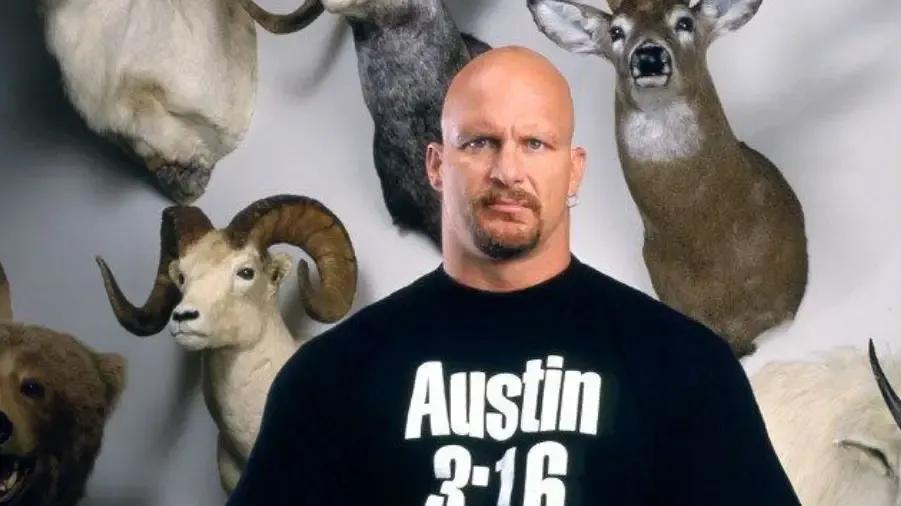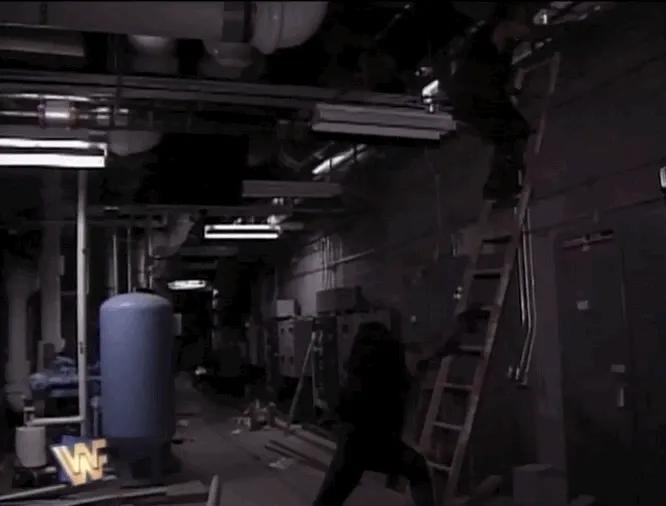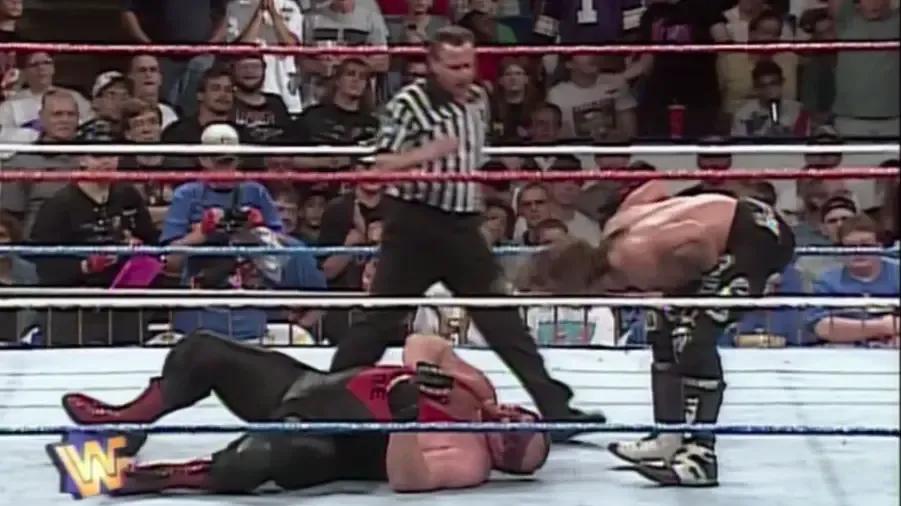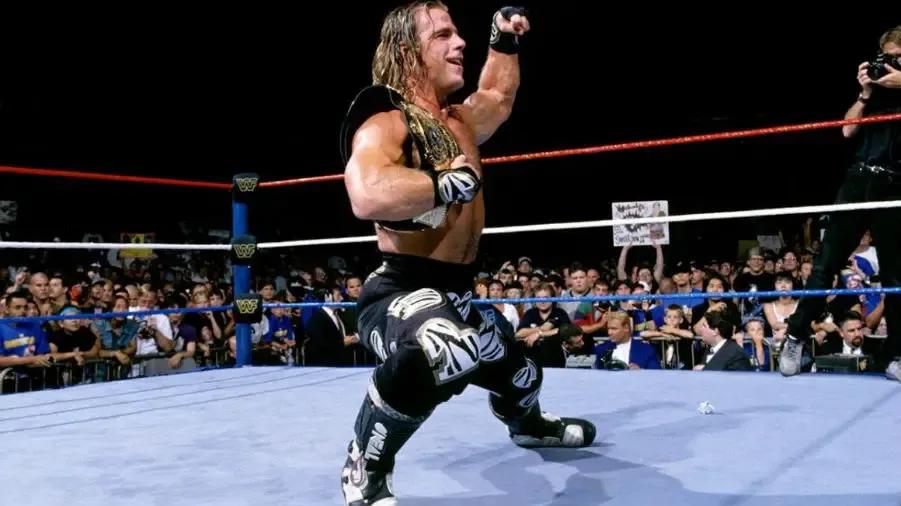10 Things We Learned From WWE SummerSlam 1996
Shawn Michaels didn't like working with Vader...

Jul 29, 2018
SummerSlam 1996 was certainly an unusual animal, a night in which the heels went over in six of the eight matches (including Steve Austin defeating Yokozuna in the Free For All match). One of the two babyface wins came in the night's closing match, when WWE Champion Shawn Michaels conquered Vader to retain the gold, but didn't exactly look heroic in doing so.
The year 1996 wasn't exactly a banner one for WWE, as WCW's overall freshness (thanks mostly to the New World Order, but the Cruiserweight influx helped) had Nitro pounding Raw in the ratings on a weekly basis. That Scott Hall and Kevin Nash were helping WCW thrive while best friend Shawn Michaels' run at the top came at a time when WWE looked oh so inferior was a delectable irony.
It's fair to say that at this point, the 1996 SummerSlam was the worst among WWE's catalogue of August pay-per-views, and it might today still rank dead last among the worst SummerSlams (though 2003, 2007, and 2010 are all certainly solid contenders). Once more, Michaels was being counted on to be The Showstopper that he'd been for several years running, but in cases like this particular SummerSlam, his best efforts sometimes were just not enough.
"Card subject to change" is WWE's favourite caveat, because at any time, plans for even the biggest events can change. SummerSlam 1996 was a victim of some of those notable changes, as local advertising in the Cleveland area (where the show would take place) had some very different matches announced as taking place at the pay-per-view.
One of the more glaring ones was British Bulldog going one-on-one with The Ultimate Warrior. Warrior would leave the company in mid-July following a major blow-up with McMahon, with a returning Psycho Sid filling in for him on house shows, as well as the SummerSlam match. Also changed was an Intercontinental title match with champion Ahmed Johnson defending against Owen Hart. The ads were made up before the debut of Faarooq, who would be swapped into the match with Johnson, which ended up not taking place.

The planned IC title bout between Johnson and Faarooq stemmed from Faarooq's debut on an episode of Raw that July. Ron Simmons (dressed as a gladiator with foam helmet) assaulted Johnson at ringside, beating him down during a tag team bout. Faarooq (then known as Faarooq Assad) was the latest charge of Sunny's, and would be gunning for Johnson's belt come SummerSlam.
As noted, the match would not come to pass. Johnson was legitimately injured during the course of the scripted assault, having taken some especially stiff kicks to the lower back from Faarooq. Johnson was taken off the road shortly thereafter with breathing problems, and Dave Meltzer would report that Johnson wound up in intensive care, where he would require surgery on his kidney. Johnson would vacate the IC title, and would not return to action until much later in 1996.

Two months after winning the 1996 King of the Ring (whereupon he gave one of the most famous speeches in the history of professional wrestling), Stone Cold Steve Austin wasn't exactly cutting a burning swath up to the main events. It would take a rivalry with Bret Hart for Austin's true potential to be revealed, and for WWE to fully get behind the Stone Cold juggernaut. In the meantime, Austin spent SummerSlam 1996 barely defeating Yokozuna in a brief match, as a result of Yokozuna's blubber-related clumsiness.
There were 10 King of the Ring tournaments on pay-per-view between 1993 and 2002, and Austin was the only King to not wrestle on the main card of the following SummerSlam. Every other King, including Mabel and Billy Gunn, earned a spot on the actual SummerSlam pay-per-view card that followed, and Austin, amazingly, was the only exception to that.
The Marc Mero/Goldust match in the middle of the show wasn't much to write home about - just two recognizable performers having an average match, but with one exceptional moment. Late in the contest, Mero ascended the ropes and delivered a Shooting Star Press (dubbed The Wild Thing), stunning the crowd and even Vince McMahon himself. In the days before every other match boasted a bevvy of flips, Mero's Wild Thing was something else.
Apparently, Mero had only taken to practising the move days before the pay-per-view, working out the kinks at a local gym. That's a fairly risky proposition, given the inherent dangers of doing a Shooting Star Press (see: Jericho, Chris), especially at a major pay-per-view when you're not as experienced. But the move came off perfectly - it's just too bad that he didn't get to finish with it, and in fact lost to Goldust moments later.
The Jake Roberts/Jerry Lawler feud was a source of discomfort for a number of fans, due to the inclusion of Roberts' real-life alcoholic struggles in the angle. Lawler mocked Roberts' commitment to sobriety, most famously in his pre-match spiel at this SummerSlam, when he brought out several booze bottles as a "peace offering" for Roberts.
Both Lawler and Bruce Prichard have gone on record as saying that Roberts was all for the angle, that he felt fans could relate to an individual struggling with overwhelming addictions. Roberts, on the other hand, has said that he wasn't a fan of the angle, that it went places that it didn't need to go. Whether that means Roberts didn't care for Lawler's making light of Roberts' drinking problems, while being all for doing a portrayal of himself as a reformed man, isn't clear. Regardless, worse times would be ahead for Roberts until Diamond Dallas Page helped him turn his life around, hopefully for good.
It's a match you have to be in the right frame of mind to enjoy. The Undertaker and Mankind squared off in what would be the first ever Boiler Room Brawl, in which the hardened brutes would fight tooth and nail in the catacombs of the Gund Arena. The lack of commentary for much of the match helped create a very eerie atmosphere, but parts of the skirmish don't make for the most exciting television. Gritty? Certainly. Realistic? To a degree. Telegenic? Sometimes.
The first half of the match was actually filmed the night before, which would then be seamlessly edited into the pay-per-view broadcast where Undertaker and Mick Foley would pick up where they left off during the live telecast. Foley remembers that Undertaker did promotional work all through that Saturday, and was thoroughly exhausted when he arrived to film the early scenes of the match. But to watch the battle, you'd never know it.

We've seen Mick Foley bleed, get tangled up in barbed wire, take deadly falls, and get caught in the middle of lethal explosions. That he became a best-selling author *after* cheating death in thousands of instances is what makes him such an inspirational figure. While some of his most memorable crashes-and-burns immediately come to mind, few might not realize that one particular bump at this event was nearly Mick Foley's ruin.
At one juncture earlier on in the brawl, Mankind is knocked off of a ladder by Undertaker, which sends him falling toward a makeshift crash mat comprised of some flattened cardboard sheets. Mankind's upper body caught the target, but his lower half landed with a thud on the concrete floor. The landing would do severe damage to Foley's sciatic region, as well as disc issues, that would persist for seven months until Foley dealt with the blinding pain through vigorous self-rehab.

Shawn Michaels has made it very clear that the man he turned into back in the mid-nineties is not the Shawn Michaels that you see today. An egomaniacal perfectionist prone to dam-busting outbursts, Michaels was a source of frustration for many, from his fellow wrestlers to company officials. If not for the fact that Michaels was damn near untouchable in the ring, he would've likely been shown the door a long time ago.
One of the most blatant examples of Michaels' questionable professionalism came in the night's main event, when Vader had forgotten to roll away from a Michaels flying elbow smash. Instead of quietly improvising, Michaels struck Vader as he lay on the canvas, and angrily lit into him in a moment that was clearly out of character. While Vader would admit in an interview that he screwed up the spot, the reaction was still not Michaels' finest moment.

Michaels would beat Vader pretty decisively at SummerSlam, which didn't seem all that unusual, as it was a case of a proven top-of-the-card heel laying down so that the face of the company could score a major victory, further establishing him as a worthy champion. That wasn't the original plan, however, and it was because of Michaels that things changed.
Originally, SummerSlam's main event was to have seen some sort of controversial non-finish that would necessitate a rematch between the two at Survivor Series, where Vader would capture the belt. Michaels would then regain the title at the Royal Rumble before 60,000 of his fellow San Antonians. As it turned out, Michaels loathed working with Vader, whose brutally-stiff work admittedly wasn't all that fun to endure. Michaels reportedly even threatened Vader's job at one point when Vader grabbed his scalp a bit too hard during a house show match. Vader was swapped out for Sid, who would carry on with the two title changes in the Mastadon's place.

Would you believe that the 1996 SummerSlam was the least-bought SummerSlam of all time, pre-WWE Network? It's true - the 1996 show did a mere 157,000 buys, making it the only SummerSlam to have failed to top 200,000 buys, at least prior to the Network making pay-per-views relatively obsolete as far as WWE's concerned.
That the 1996 event was down 23 per cent from one year earlier (205,000 buys for 1995) is astounding, considering that 1995 is often considered the most dismal year in WWE history. But with WCW and the nWo nut-punching a vulnerable, stale WWE into oblivion, perhaps it shouldn't be all that surprising. What *is* surprising is just how drastically fan interest in buying an event called SummerSlam would change in just two short years. But that's a story that will have to wait for that specific list.